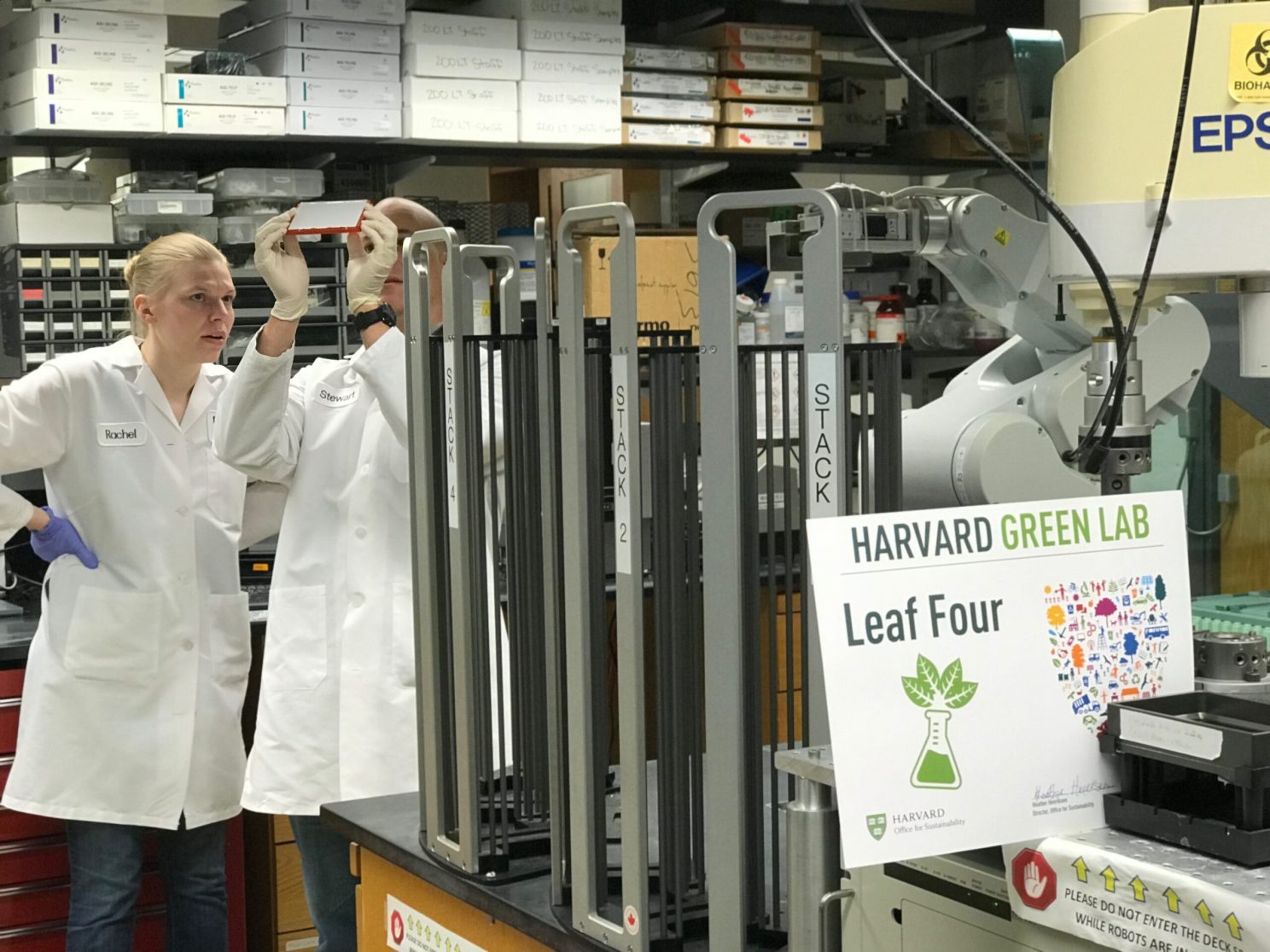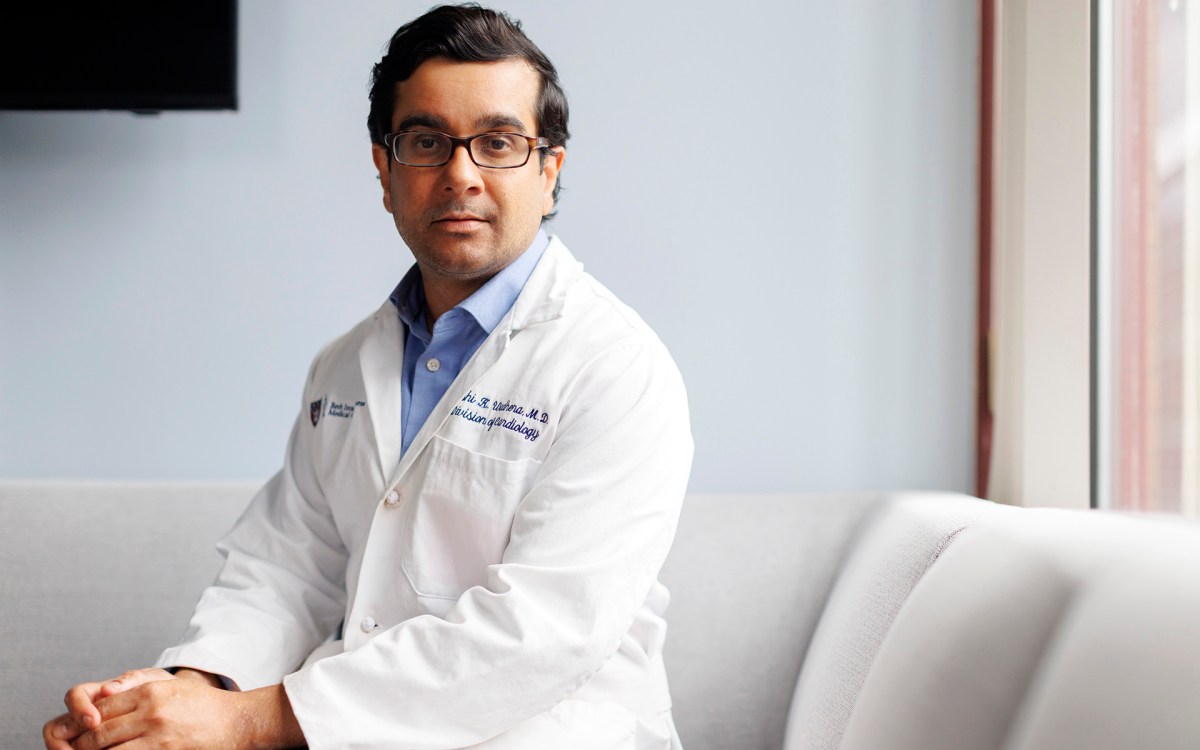Laboratories are the most energy intensive spaces at Harvard, and a new Green Lab certification program being rolled out at the University’s Longwood campus — and available as an educational resource to anyone — seeks to encourage researchers and lab staff to address this challenge with a framework for tangible sustainability actions.
There is approximately five million square feet of laboratory space across the University, accounting for 22 percent of the total building area and nearly 44 percent of the University’s total energy use. This disproportionately high energy consumption calls for creative and thoughtful approaches to optimizing labs for health and safety, reducing their energy intensity, while maximizing the capacity for the Harvard community to conduct world-class research.
Harvard’s new Green Lab certification targets lab-level changes — a complement to building-level strategies — and requires engaging researchers, lab staff, and building operators in the process.
The certification process is intended to empower, encourage, and recognize labs that are engaging in sustainable practices and is applicable for laboratories of all types. The certification consolidates a variety of resources from Harvard and elsewhere into a self-directed toolkit with four certification levels, similar to Harvard’s Green Office program. It’s designed for lab members to be able to pursue on their own, in collaboration with other labs, and in partnership with Harvard’s Office for Sustainability and Environmental Health and Safety.
Harvard’s first certified Green Lab
Harvard Medical School’s Institute for Chemistry and Cell-Biology Longwood (ICCB-L) Screening Facility is not only the first lab to be certified under this program, but received the highest level of certification.
ICCB-L’s coordinator of operations, Katrina Rudnicki, a longtime champion of lab sustainability efforts, led the green lab certification process. Despite a longtime commitment to lab sustainability, she says the certification process “provided new opportunities and resources to drive further improvements.”






